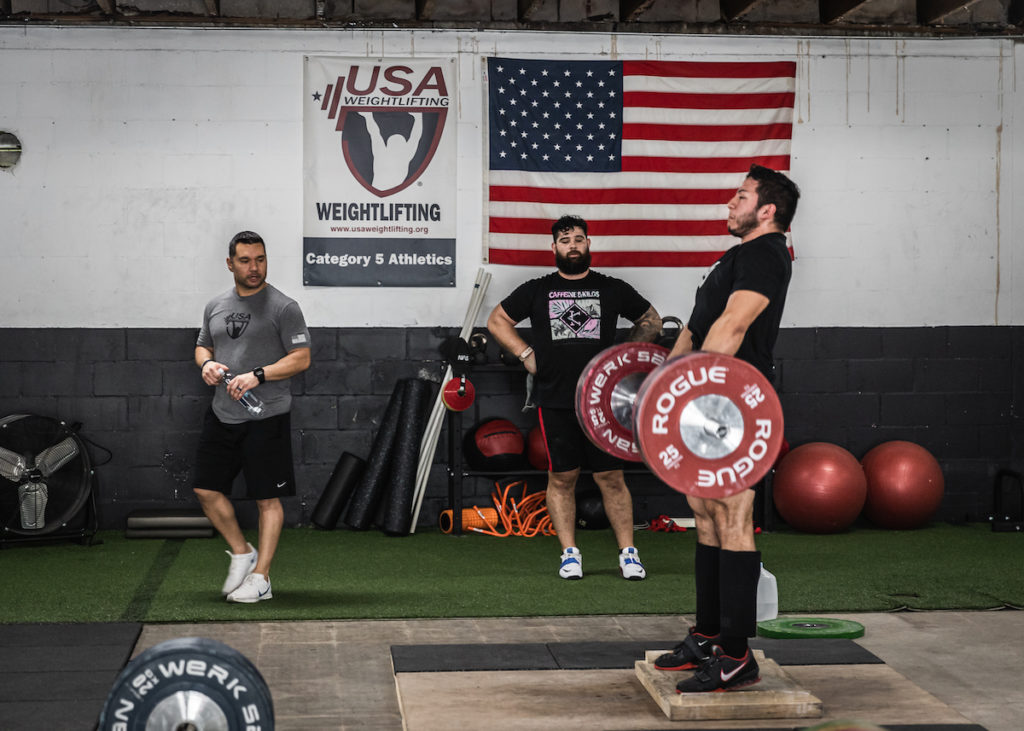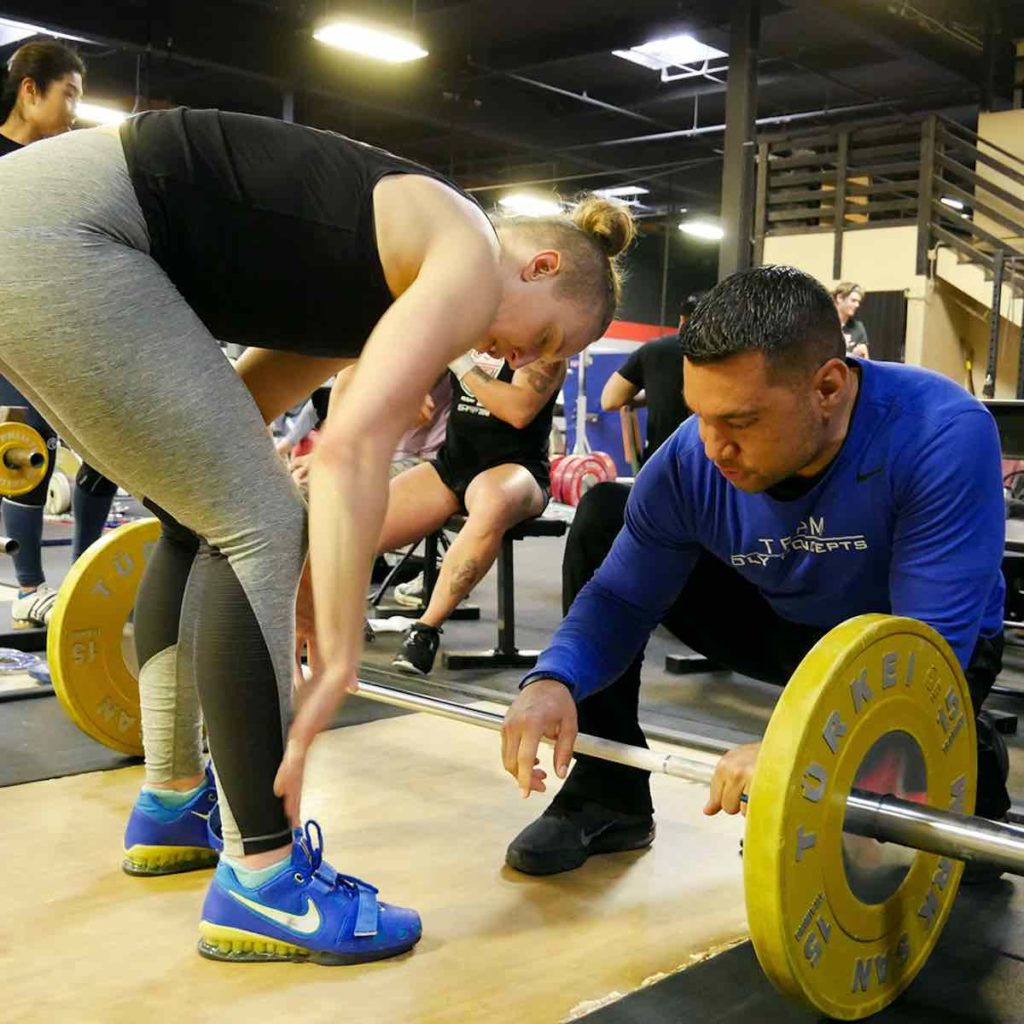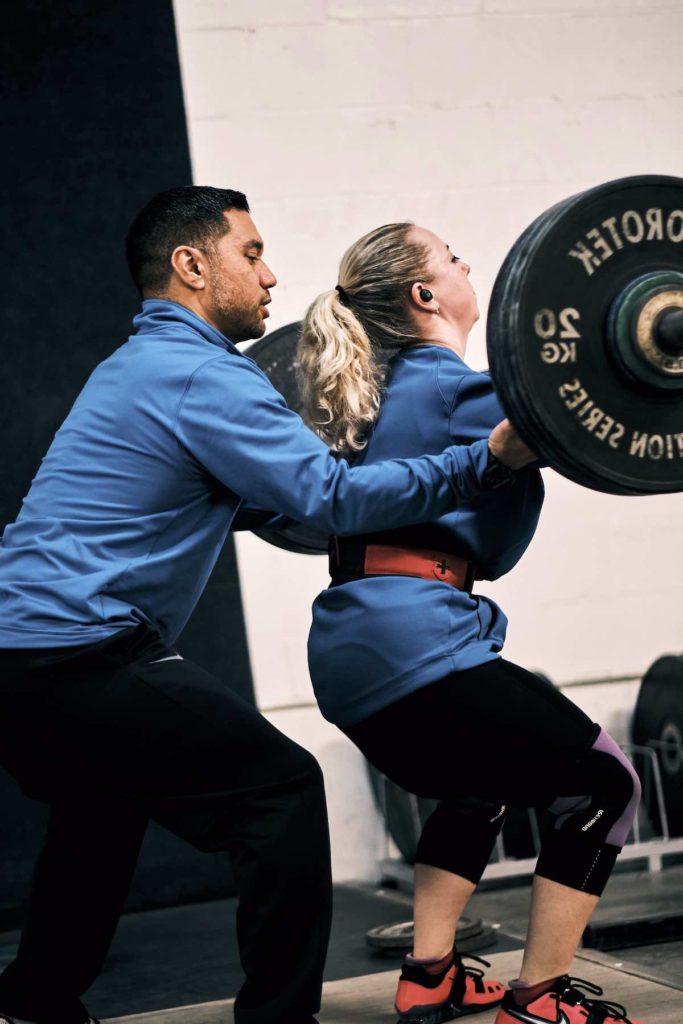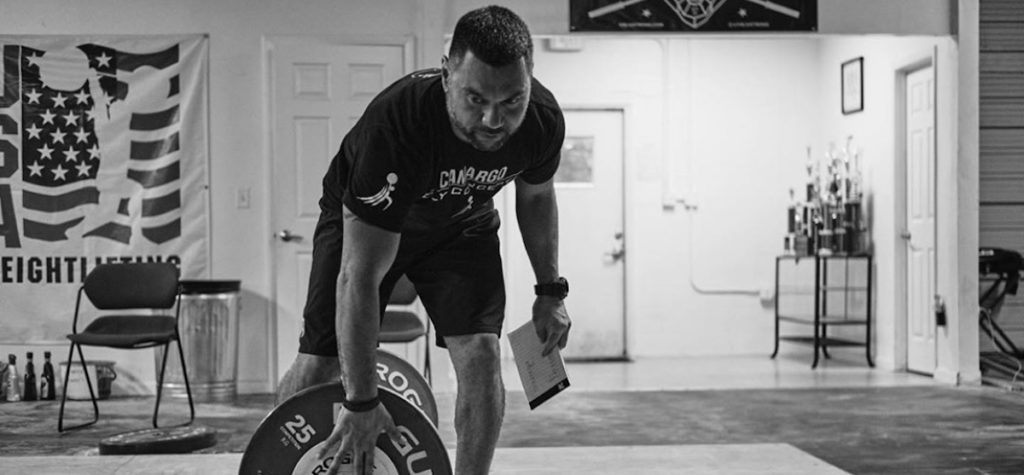Some of us enter the coaching profession for a livelihood, and many of us do it for free as a hobby, out of pure love. When you love something you want to share it with everyone. It’s just human nature. This love tends to be the primary motivating factor in most who choose to coach.
My decision to coach weightlifting came quite easy, before I ever retired as an athlete. I recall I would watch coaches working with their athletes and experience my coaches working with me and would think, “when I retire, I want to do that.”
I found myself slowly helping my coach with random tasks, peer coaching, and working with others toward the end of my athletic career. It happened organically. Little did I know it would define me the rest of my life. I just wanted to stay involved in this great sport of ours after I finished competing, in any capacity, and I chose coaching.
Now in my 21st year, with all the ups and downs I find myself just as excited, motivated and nervous as I did the day I made the switch. This stuff never gets old.

I have realized over these years there are some misconceptions about the job people should be aware of before taking the plunge. Some of these I was guilty of early on and I learned the hard way. From my experience, these are the top misconceptions people have about becoming a coach.
Coaching Misconception #1 – “You have to be a good athlete to be a good coach”
This one ranks top of my list because we all doubt ourselves at some point about it. You do not have to be a good athlete to be a good coach. If you want to be a good coach, well, then be a good coach. Sure, being a good athlete might give you early credibility and might help with attracting people to you, but can it keep them?
Having been an accomplished athlete is a great way to get attention, but being an effective coach is the only way to keep it. With time and success, the athletic reputation you thought you needed will be replaced with your coaching reputation. That is sustainable, renewable, and more guaranteed to last.
So does having experience as an athlete help you coach? Absolutely! That’s knowledge we should all have when entering the art of coaching. “Weightlifting 101” dictates practicing the movements yourself gives you a better understanding of them.
But, do you have to be a great athlete or become a champion to develop other people? Absolutely not. You as the performer on stage vs. you the guide to others are not the same. As an athlete you only worry about one person, yourself. As a coach, you worry about everyone else. There are plenty of well-respected coaches who have developed champions and are highly regarded as elite coaches who themselves never competed at high levels; some of whom never even wore a singlet.
Coaching Misconception #2 – “Certifications gain you instant credibility”
Certifications are important and we should all make efforts to obtain the ones most relevant to our goals. However, I learned early on that people are aware of the difference between weekend “certs” and real experience. I am proud to have participated in and earned such certifications as all the USA Weightlifting coaching courses, for which I am now an instructor, as well as the CrossFit coaching certification and other various fitness-related courses.
They’re useful. They’re informative. They’re also a time to network and meet other like minded professionals to talk shop, get some new ideas or even just reaffirm what you already know, giving you reassurance you’re on the right track. But certs are only a small tool in the coach’s toolbox.
I’m not saying don’t do them, just know what they are, a device. Experience and continued growth is what lends credibility. How do we express that to future athletes and clients? Doing the job.
Coaching Misconception #3 – “Programming is everything”
There’s a trend in our community of athletes constantly in search of the “perfect program.” Unfortunately, there is no such thing.
The perfect program is a myth. Programming is only half the equation of development. The other half is the actual coaching that guides that program. It’s important to have a plan, it’s important to have the knowledge to write workouts, and it’s important to have a good system of reps vs. sets vs. loads but that’s where it ends. After that it takes observation, guidance, modification, and feedback from the athletes themselves to work through that program. Every great program is only a guideline.
Whether you’re writing for a single person, individualizing from scratch, or writing for groups, what you write doesn’t mean as much as your ability to adjust to what’s written. It’s okay to deviate from the original program. In fact, it’s expected. That is not a reflection of your coaching. It’s sports. Deviation only means the person is or isn’t responding the way either of you had hoped. That’s not a you-issue, don’t doubt yourself, it’s a they-issue.
With such outside stressors as work, school, relationships, personal lives, weight changes, physical growth, etc you can’t possibly predict weeks in advance how someone will accomplish your program. When an athlete feels great, we allow them to increase load or add more stuff. When an athlete feels terrible, we direct them to decrease the load or remove stuff. The concept works both ways.
With that in mind, and this goes for both athlete and coach, take good care of your efforts to program but don’t lose sleep over it.
Trust that your skills become tested when there’s a problem or when it’s time to adjust training. We coaches should never lay awake over programming so long as what we write makes sense. This goes especially when working with beginner or intermediate athletes. Why? Because the vast majority of what you program, whether it has a specific purpose or is more generalized, or is even just filler, will still improve their skills. As a colleague of mine, Danny Lopez of CrossFit Soul once said, “Anything you write will make them better.”
Is there a time when we should lose sleep? Potentially, when we’re working with experienced athletes, especially the elite when modifications are of greater importance and anything we give them could conceivably affect their career. Elite athletes can feel what beginners and intermediates cannot. They have what newer athletes don’t, awareness.
Of course developing and adjusting a program requires the athlete to communicate that. We coaches can’t read minds, we can only read performance. The athletes at these levels need to be able to communicate with their coach so the two can work together toward long term success.
Coaching Misconception #4 – “Respect is deserved”
You’ve certainly heard the phrase “check your ego at the door.” I agree. Ego is the negative version of pride and it can cloud our judgment. It’s actually a positive thing to have pride, ego not so much. So check your ego but not your pride. Maintain that pride, pride in your work, pride to be a coach and pride in your athletes’ performances.
As such, nobody just deserves respect. It is earned by them. Having the title of “Coach” and the job of leading people in the gym might certainly gain us attention and it should. We are the trusted professionals guiding people. But beware of taking that attention as deserving of client and athlete respect. There’s a difference. The respect we desire must be earned through our actions. As the saying goes, “managers direct, leaders inspire.” Before becoming a coach remember that respect is a like credit, it’s so easy to ruin and takes so long to repair.
Coaching Misconception #5 – “It is possible to know everything you need to know”
Coaching has no destination, no endpoint. No matter the achievements, the accolades, the wins, the athletes, the money, it never ends. We’re always getting better at it. I remember as a newer coach all I desired was the knowledge to be a good coach and the instincts to make the right competition decisions, namely if I worked hard enough I could get to a point where I knew everything I needed to, as if there was some level of skill that would make the job easier and lessen the doubt.
Well, I still haven’t gotten there yet.
The closest I have come is a point where I’m comfortable with the job, confident in my ability to work through problems and troubleshoot issues. I believe that’s what all we coaches should strive for. Once you’re “there,” you’re just then getting started, because the more you know, the more you think about. You have more choices to make for the people you lead. The stress gets worse, not less, especially at higher levels when so much is at stake.
You’ll never know everything you need to know. You can only possess enough knowledge to make decisions based on the infinitely varied scenarios you will come across. Plus, if you’re a competitor at your core like me, you’ll find that whenever you get “there,” wherever “there” may be for you, you’ll stop to look around and think “how can I make this better?”
So you want to be a good coach? Start by doing it for the right reasons. Coaching just to simply show off your knowledge is not a sustainable motivator. Love the sport, continue to grow through education, constantly communicate with your athletes, earn respect and always keep learning. Don’t forget to stop and enjoy it!
Images courtesy Danny Camargo


